![]()
Statement by
H.E. Mr. Mohamed Moncef Marzouki
President of the Republic of Tunisia
before
United Nations General Assembly
Sixty-eighth Session
General Debate of the General Assembly
New York, 26 September 2013
Unofficial translation from Arabic into English
Mr President,
Ladies and Gentlemen,
God’s blessings be upon you,
From my country Tunisia and on behalf of the Tunisian people I address you and all peoples of the world that you represent with greetings and appreciation.
Tunisia as you know was the first country to experience the “Arab Spring” on the 17th of december 2010. These peaceful revolutions by Arab peoples to rid themselves of corrupt dictatorships that hampered the economic, political and social development of the countries, what is witnessed in some “Arab Spring” countries, may bring some to believe that the liberation project has failed and that the dream has turned into a nightmare.
What we must remember is that this “Arab Spring” is not a final stage to be achieved over night, rather it is just beginning and a road to brighter horizons.
What we must take into consideration is the element of time. Peoples require several decades to take full control of the revolutions and give them success or failure. We must remember that the “Arab Spring” like all human projects can stumble and indeed may fail. Our duty… your duty is to insist on supporting this path.
We believe that the difficulties of building democracy and peace in the “Arab Spring” countries cannot turn those peoples back. We want to fight extremism and replace it with nationalism and positive patriotism. Indeed, the difficulties show that political and ideological forces are pushing the countries in various directions. The building of democracy and civil institutions are replete with difficulties.
In connection with that, I call on the current authorities in Egypt to release President Mohamed Morsi and all political detainees. Such a brave initiative alone is likely to put an end to political tensions and stop the violence, returning all parties to dialogue.
The issues facing Gaza — let alone the rest of Palestine — show us the immense difficulties facing the Palestinian people caused by Israeli occupation and colonization.
We face three challenges: first, terrorism through the killing of Shukri Belaïd on February 6, 2013 and Mohammad al-Brahimi on the 25th of July is a major political challenge. The second challenge is the slowing of foreign investment and third, the need to learn democracy at a time when we are building and defending it. It has not yet taken root in economic and rather political and social traditions. In Tunisia, we have many elements pointing to success. We have a responsible political class that has continued its dialogue and we have peaceful and politically aware people who know their own interests.
Let me assure you that the “Arab Spring” in Tunisia will continue and succeed. We shall set a date for elections and will agree on fair government. Such elections will be supervised by the United Nations, the Arab League, the African Union and all other regional and local organizations. God willing, they will be held next spring. We hope that the forces of terrorism will be stopped in its tracks.
I wanted to reassure you Tunisia is undertaking this experiment for itself and the rest of the world. We want our revolution to be peaceful. We want transitional justice to have a role in this transitional period. We also want to expand the concept of democracy. It is not merely the right of those winning 51% of the vote and ignoring those who won 49%. We want coalition governments that take into consideration that society is made out of many parts. We want to learn from eachother and our success will have consequences that will go far beyond our borders, hence the importance of solidarity between peoples to ensure success for this unique experiment.
This “Arab Spring” today is reaching ultimate suffering in Syria. The violence in Syria has astonished us from the outset. It is escalating day by day. It is so brutal today… so brutal that history has never witnessed such brutality.
In Tunisia we have taken a strong position against the dictatorship in Syria. We supported the opposition and we expelled the regime’s ambassador in our country. We have long warned against factionalism, sectarianism and intervention by others whether states or so-called jihadi groups including the involvement of some Tunisian groups in the conflict. We know that they when they return from that suffering country they will be a danger to us.
We have gone so far as to say that life is more important than justice. And if it is necessary not to prosecute the Syrian dictators and if they leave the scene, we ought to accept the situation, however bitter, however our fears have turned to reality. We continue to live this nightmare of oppressing against the vialant Syrian people. We have never seen such brutality.
Indeed, there’s a need for a political solution to end the nightmare, however we also want your support for prosecution in the International Criminal Court. This would be a further addition to international law to protect peoples against dictatorships and particularly the Syrian dictatorship — the worst example of how amoral a regime can become in its actions.
We are fully confident that had such a court acted, the Syrian regime would not have tried to establish hereditary rule. it would not have dared to convict members of the opposition and sentence them to death. Imagine if such a court acted against such cases. What if such a court had been able to intervene in support of human rights. Imagine how the nightmare of the Syrian people could have been avoided. One hundred thousand dead and so many displaced people. A regime killing men, women and children with all the weapons it has been provided with including chemical weapons. Have we ever witnessed such a brutal regime in such a brutal civil war that has gone beyond any of the most ugly scenes in the region in history.
Indeed, they ougth to be brought before the International Criminal Court, although delayed justice cannot return people from the dead. There have to be preventive bodies that take up such situations from the very beginning. Such regimes cannot last long against internal democratic opposition with international recognition. So Tunisia calls on all influential States who wish to build institutions against dictatorship to support our project. We believe that such a constitutional court would be the expression of a new spirit required by the international community.
Ladies and Gentlemen,
We are meeting in this place with all the nations of the world to review the problems and troubles of the peoples, most of which are premeditated. We would have been able to avoid such tragedies had we thought globally and acted locally. As a doctor, I want to recall our victories against epidemics that raged against mankind by taking preventions. Dictatorship must be prevented internally and among peoples. In facing such epidemics, we must have policies to save mankind. Our hope is in God, that we have enough time to choose such a direction.
Thank you.



 RSS
RSS

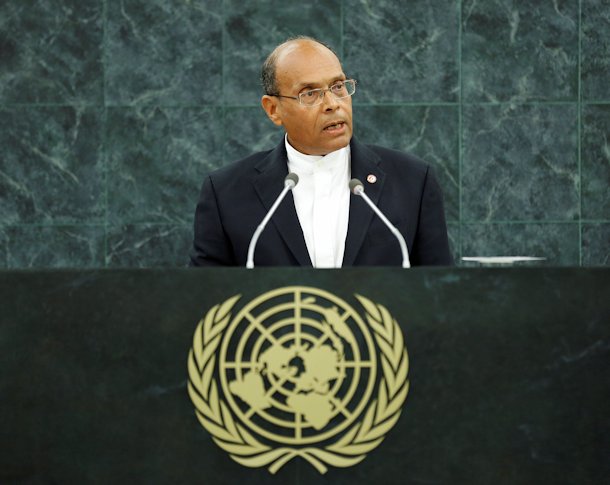
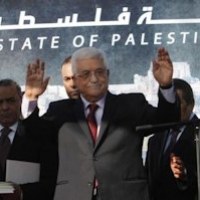
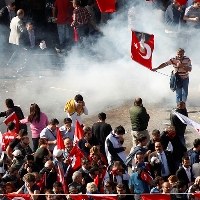

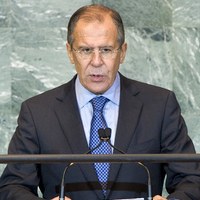
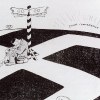




Latest Comments
Hello Mike, Thank you for your positive feedback to the article. I felt there wasn’t too much critical analysis of ...
Thanks for this considered and well constructed article. A follow up article on the manner in which the editorial contro...
THE CLUELESSNESS OF CLAIMING THAT OBAMA'S MIDDLE EAST POLICIES WERE A FAILURE CANNOT BE FURTHER FROM THE TRUTH, WHAT THE...
As long as Obama is the president of the usa do not trust the us government......
Thank you for an good read....